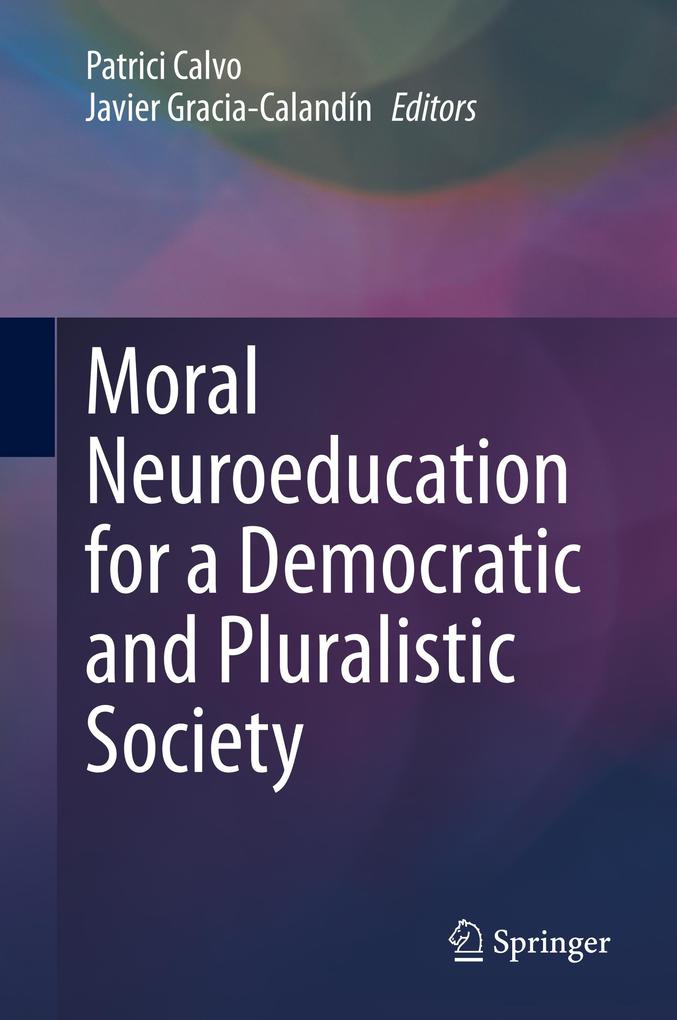
Zustellung: Sa, 12.07. - Mi, 16.07.
Versand in 7 Tagen
VersandkostenfreiBestellen & in Filiale abholen:
This book brings together a group of top scholars on ethics and moral neuroeducation to cover the specific field of moral learning. Although there are many studies on neural bases of human learning and the application processes in different fields of human activity, such as education, economics or politics, very few of them have delved into the specific field of moral learning. This book brings forward a discursive and cordial ethical concept suitable for the theoretical-practical development of moral neuroeducation, as well as a set of guidelines for the design of an educational model that, based on moral neuroeducation, contributes to the resolution of social problems and the eradication of undesirable patterns and behaviors such as hate speech, corruption, intolerance, nepotism, aporophobia or xenophobia. Furthermore it contains a management approach for the application of this educational model to the different areas of activity involved in social and human development. Amust read for students, educators and researchers in the field of moral philosophy, (applied) ethics ethics and any other discipline working with reciprocity (economics, politics, health, etc.).
Inhaltsverzeichnis
Part I: Ethics for Neuroeducation, - Chapter 1: Must Ethics for Moral Neuroeducation be Naturalistic? (Jesús Conill). - Chapter 2: Neuroeducation and Moral Knowledge: The Contribution of Renewed Discourse Ethics (Domingo García-Marzá). - Chapter 3: Non-naturalistic neuroethics for moral euroeducation (Javier Gracia). - Chapter 4: Moral Neuroeducation From a Phylogenetic, Ontogenetic and Functional Perspective(Andrés Richart). - Chapter 5: Moral N euroeducation, Ethics of Justice and Pluralism(César Ortega-Esquembre). - Part II: Moral Emotions in the Neuroeducation. - Chapter 6: The Role of Emotions in Moral Neuroeducation(Lidia de Tienda). - Chapter 7: The Need of Moral Neuroeducation in Ethical Humour(Juan Carlos Siurana). - Chapter 8: The Uses of Imagination in Moral Neuroeducation(Francisco Arenas-Dolz). - Chapter 9: Moral Neuroeducation from a Nietzschean Perspective(Marina García-Granero). - Chapter 10: The place of rational will in moral neuroeducation(Emilio Martínez). - Part III. MoralNeuroeducation in Practice. - Chapter 11: Moral Neuroeducation: Proactive Epigenesis and Poverty(Daniel Pallarés-Domínguez). - Chapter 12: The Case of Gender in Moral Neuroeducation(Sonia Reverter). - Chapter 13: Neuroleadership: Diversity as a Moral Value in Organisations(Maria Medina-Vicente). - Chapter 14: Relations of Justice: Neuroeducational Guidelines for Organizations(Elsa González-Esteban). - Chapter 15: Moral Neuroeducation Faced to the Challenges of the Fourth Industrial Revolution(Patrici Calvo).
Produktdetails
Erscheinungsdatum
28. Januar 2020
Sprache
englisch
Auflage
1st edition 2019
Seitenanzahl
252
Herausgegeben von
Javier Gracia-Calandín, Patrici Calvo
Verlag/Hersteller
Produktart
gebunden
Abbildungen
XVI, 234 p. 2 illus.
Gewicht
547 g
Größe (L/B/H)
241/160/20 mm
ISBN
9783030225612
Entdecken Sie mehr
Bewertungen
0 Bewertungen
Es wurden noch keine Bewertungen abgegeben. Schreiben Sie die erste Bewertung zu "Moral Neuroeducation for a Democratic and Pluralistic Society" und helfen Sie damit anderen bei der Kaufentscheidung.










